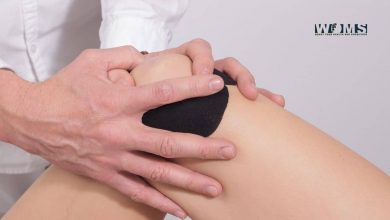Skin And Menopause: Changes You Can See And Treatment Options

Menopause is when a woman’s body goes through some significant changes. About 5 percent of women undergo menopause between the ages of 40 and 45.
As women approach menopause, they may notice changes in their skin. There are a few things that you can do to help take care of your skin during this time. This article will discuss the changes that you may see in your skin and menopause treatment options.
How Does Menopause Affect The Skin?
The symptoms of menopause on your skin might include the following:
1) Itching Or Burning
During menopause, changes in hormones can cause the skin to become thinner and drier. It can lead to itching or burning, especially on the face, breasts, etc.
Here’s why this happens:
The loss of estrogen causes the skin to produce less collagen. Collagen is a protein that keeps skin elastic and plump. Less collagen means your skin can become thinner, drier, and less supple.
Estrogen also helps keep the skin’s natural moisture barrier intact. This barrier protects your skin from losing water, making it dry, fragile, and more prone to itching and burning.
2) Dryness Or Flaking
Flaking is the most common symptom associated with dry skin. It can happen for several reasons, but the main one is a loss of moisture in the outer layer of the skin. Dead skin cells don’t fall off and instead accumulate on the surface. It can make the skin look dull and flaky.
When your skin is dry, it can feel tight, rough, and irritated. You may also notice that your skin is more susceptible to developing lines and wrinkles.
Dryness is a common problem during menopause for several reasons. One reason is that estrogen levels are decreasing. This hormone helps keep the skin moist by stimulating the production of natural oils. It also helps the skin retain its elasticity and thickness.
3) Erythema
Erythema is defined as the redness of the skin. Several things can cause it, but it often occurs due to inflammation or increased blood flow. In menopausal women, erythema is often caused by hormonal changes.
It can manifest itself in various ways, including hot flashes, night sweats, and mood swings. Hot flashes are the most common symptom of menopause, and a sudden release of estrogen causes them. Night sweats are caused by changes in the body’s temperature regulation. And mood swings can be caused by many things, including stress, anxiety, and sleep disturbances.
4) Acne Breakouts, Clogged Pores, And Blackheads
During menopause, the body’s production of estrogen decreases. It can cause an increase in androgen levels, leading to changes in the skin, such as increased oil production. Increased oil and dead skin cells can clog pores and lead to breakouts.
Acne can be treated with over-the-counter products that contain benzoyl peroxide or salicylic acid. If these don’t work, a dermatologist can prescribe stronger medications.
Blackheads are small, dark-colored bumps that form when hair follicles become clogged with oil and dead skin cells.
Treatment For Skin Problems Due To Menopause
1) Estrogen Therapy
It is the most common and effective treatment for skin changes due to menopause. It can be taken as a pill, skin patch, gel, or cream.
This therapy can help improve your skin’s thickness and elasticity. It also helps increase collagen production, which is essential for keeping your skin looking young and healthy.
2) Progesterone Therapy
Progesterone is the primary female hormone responsible for preparing the body for pregnancy. It also helps thicken the uterine lining and provides support during pregnancy.
During menopause, progesterone levels decrease, which can cause several changes in the body, including:
- Hot flashes
- Mood swings
- Sleep problems
- Weight gain
- Memory problems
Progesterone therapy for menopause treatment can help alleviate some of these symptoms by replacing the hormone in the body. It is available in several forms, including pills, creams, and vaginal inserts.
3) DHEA Therapy
DHEA (dehydroepiandrosterone) is a hormone that your body naturally produces. However, levels of DHEA decline as you age. It can lead to thinning hair, dry skin, and decreased muscle mass.
DHEA therapy may help to improve some of the symptoms associated with menopause, such as hot flashes and night sweats. It may also help improve your mood and reduce the risk of osteoporosis. The therapy is available in pill form or as a cream that you can apply to your skin.
If you’re considering this treatment, talk to your doctor about the potential risks and benefits.
Final Thoughts
Menopause is a critical time for women, and those changes can extend to your skin. Be sure to keep an eye on any new or worsening skin problems, and talk to your doctor about any concerns. It’s also essential to practice good skincare habits and use appropriate products for your skin type.




